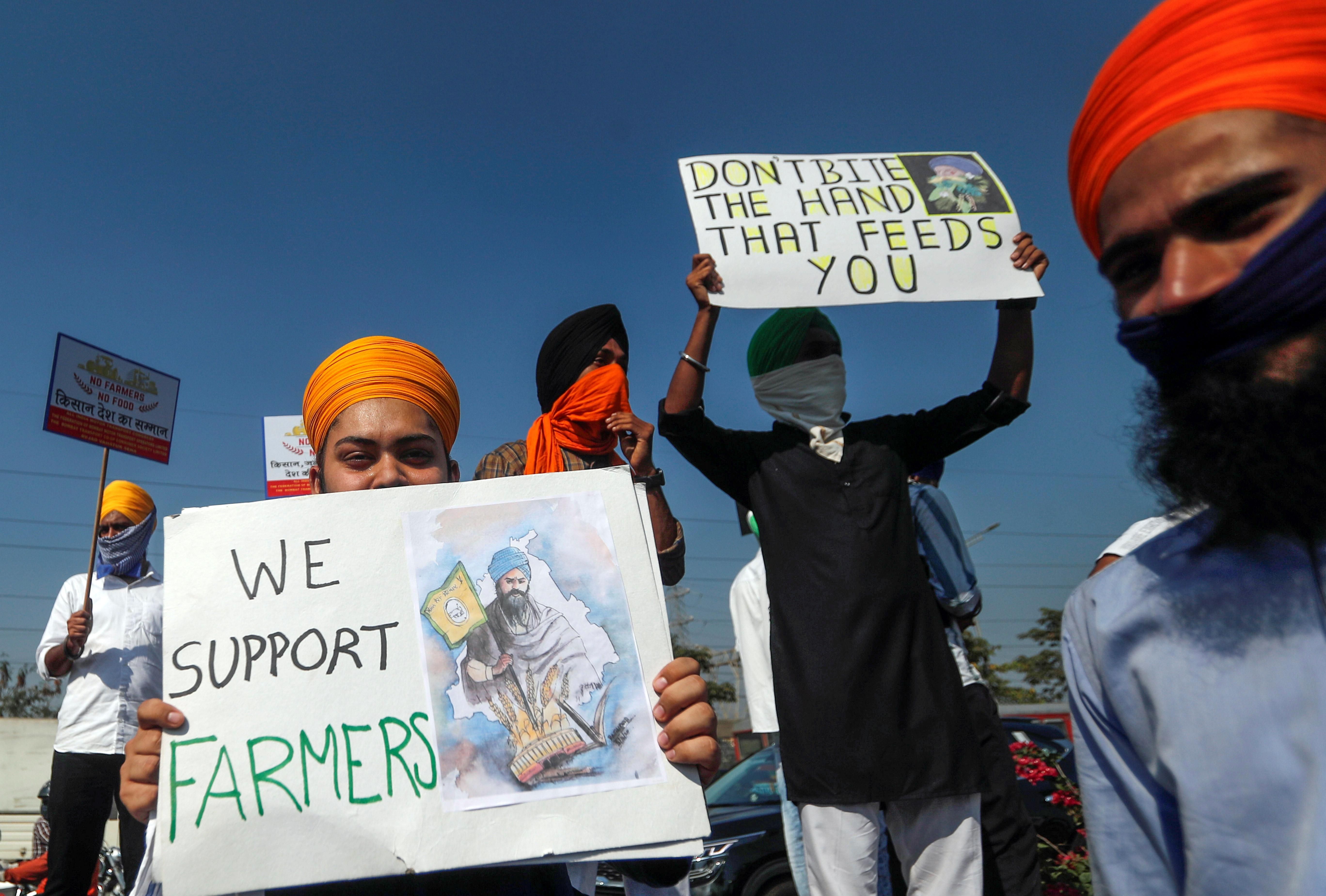December 08, 2020
In recent days, tens of thousands of protesters have descended on the capital of the world's fifth largest economy as part of a political fight that directly affects the livelihoods of more than 600 million people.
This drama is unfolding in India, where a series of reforms to decades-old agriculture laws has touched off a major political crisis. Farmers streaming in from the country's breadbasket regions have blocked roads and set up encampments in New Delhi to demand that the government scrap the new laws. Yesterday, they called a nationwide strike.
In a country where nearly 60 percent of the population of 1.4 billion people depends on farming to earn a living, this is an issue with huge repercussions for the country's popular prime minister, Narendra Modi.
What's the back story? Under a system set up by the socialist-leaning governments that held power during the first decades of India's independence, farmers have long been required to sell their harvests to state warehouses, which guarantee a set minimum price in return. To make the system more efficient and market-driven by ensuring that supply responds directly to actual demand, the government recently passed laws that allow farmers to sell to whomever they like.
Allowing farmers a greater choice of buyers might sound appealing, and supporters of the new laws say they will attract more and better investment in the sector. But many farmers' groups are angry. They say they weren't sufficiently consulted about the law and, crucially, that without the guarantee of state purchases and prices, they'll be at the mercy of large agriculture companies that can force down prices to levels that make it impossible for them to make a living.
It's a classic case of market-oriented reforms that offer the promise of more prosperity and efficiency on a broad level, while also raising individuals' fears about their own economic security and future.
For context, more than 80 percent of India's farmers are small-plot tillers who eke out a very modest living. And droughts, floods, and underinvestment were making their lives harder even before the coronavirus pandemic kneecapped the economy: last year, some 10,000 Indian farmers committed suicide.
So far, talks between the government and farmers groups have gone nowhere. The government says it's willing to revise the laws, but farmers insist on scrapping them entirely and starting from scratch.
Prime Minister Modi has to tread carefully. This is heartland politics, and unlike last year's citizenship law protests, farmers' grievances are harder for Hindu hardliners of the BJP, India's ruling party, to ignore or quash on nationalist or sectarian grounds.
Modi has, of course, recovered from many reform missteps. His decision to squeeze black markets by abruptly removing most paper currency from circulation in 2016 caused widespread confusion and produced little benefit. His historic attempt to streamline the national tax system ended up more fragmented than promised. His moves on citizenship laws and the massively disruptive short-notice coronavirus lockdowns earlier this year both seemed politically perilous at the time. Yet, he and his government remain broadly popular – Modi's approval rating is above 70 percent.
Will a mass protest by the people who feed India damage Modi more than these other misadventures did? Those tractors parked in New Delhi don't look like they're going anywhere soon.
CORRECTION: An earlier version of this piece incorrectly stated that the currency move was done in 2017 -- the measure was actually implemented in December 2016.
From Your Site Articles
More For You
Walmart is investing $350 billion in US manufacturing. Over two-thirds of the products Walmart buys are made, grown, or assembled in America, like healthy dried fruit from The Ugly Co. The sustainable fruit is sourced directly from fourth-generation farmers in Farmersville, California, and delivered to your neighborhood Walmart shelves. Discover how Walmart's investment is supporting communities and fueling jobs across the nation.
Most Popular
- YouTube
President Trump’s second term has rapidly reshaped global politics, with the US wielding power more aggressively, targeting weaker countries and even allies, Stephen Walt explains on GZERO World.
- YouTube
Ian Bremmer breaks down a sudden and serious transatlantic crisis: President Trump’s insistence that the United States must have sovereignty over Greenland.
- YouTube
It’s been a year since President Trump returned to office. How has the world changed? Stephen Walt joins Ian Bremmer on GZERO World.
© 2025 GZERO Media. All Rights Reserved | A Eurasia Group media company.
